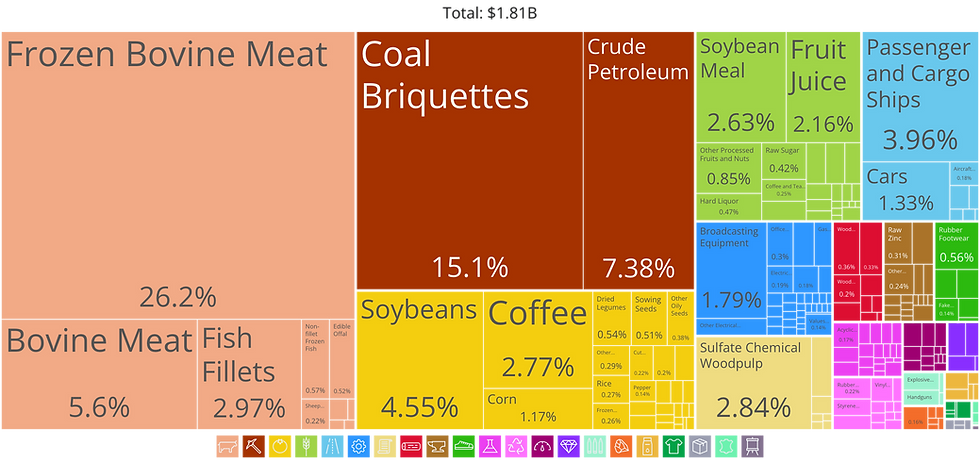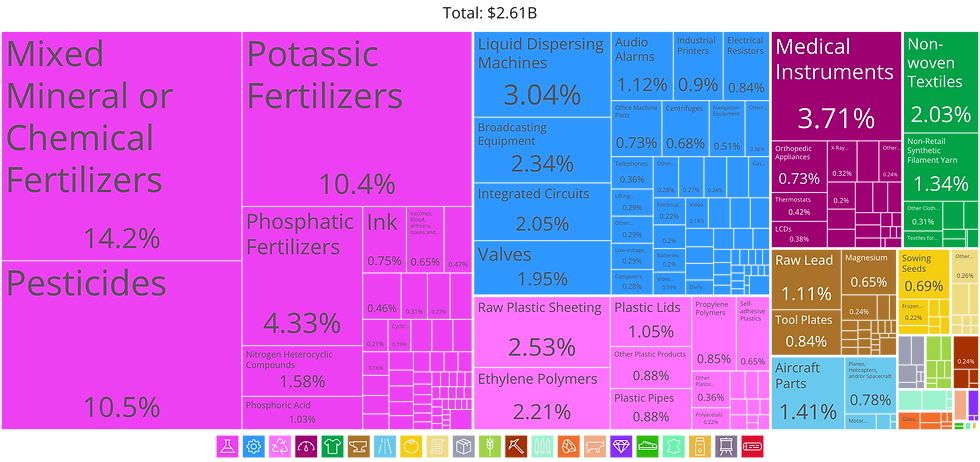

The Diplomatic Institute
Your Diplomatic and Business Bridge to Israel

Experiencing LATAM with Confidence
In the dynamic landscape of international trade, establishing meaningful connections and fostering understanding between diverse cultures is paramount.
The Diplomatic Institute's Latin Desk emerges as a beacon of excellence. We believe that successful businesses are not just transactions, but shared values, culture, and collaboration.
By choosing our Latin Desk, you align with our in-depth understanding of the culture of each country in this heterogeneous continent, the political and commercial structures, and the legal codex, including the best practices of each industry.
Our team can assure the highest standards in business and legal practices, integrity, transparency, and respect. Understanding of the legal frameworks and cultural nuances shaping both regions, we navigate the complexities of cross-border transactions with finesse. We emphasize the human connection within business, fostering long-lasting relationships built on trust and collaboration.


A bridge between Latin America and Israel
The Diplomatic Institute's Latin Desk serves as a bridge between Latin America, Spain and Israel, by creating a marketplace for enduring partnerships based on shared values and mutual benefit.
In a world where differentiation is the key to success, we know how to convert or “Latinize” your products and services for the best market fit.
Whether navigating legal issues, facilitating negotiations, or providing strategic guidance, we bring our rich expertise to the table. Our team goes beyond the conventional, reshaping the future of Latin America-Israel and Spain-Israel trade relations.
Services
LATAM Winning Strategies
Here are the key winning strategies for navigating the unique challenges and opportunities presented by the Latin American and Israeli markets.
One of key strategy for success is to develop cultural competence and relationship building skills, focusing on understanding the nuances of Latin American and Israeli business environments, cultivating strong relationships with local stakeholders, and fostering trust through effective communication based on cultural sensitivity. This approach can lead to successful negotiations and successful business outcomes.
Our Team
Why Israel?
Israel is exporting to LATAM US$2.5B per year, less than 2% of the total export, for a continent of 8% of the world population. Therefore, we are confident that the trade balance between our nations can quadruple with our contribution.
It is now well-established that Israel is known to be a Startup Nation, thanks to a variety of factors: the highest share of the National GDP dedicated to R&D, the proliferation of startups and entrepreneurial spirit, the governmental investment in high-risk ventures, the substantial inflow of Foreign Direct Investment, mainly to the high tech and the Israeli export of superior, state of the art technologies.
Over the last decades, the Israeli economy has shown tremendous resiliency, whether during financial crises, natural disasters, armed conflicts, or during the COVID-19 period. Israel resumes secured and prosperous most of the time.

Israel’s share is only 0.12% of the world’s population but produces 0.5% of the global GDP. Israel ranked 5th highest producer of Unicorns worldwide.
70
Unicorns
14Th
Global Innovation Index 2023
3rd
Worldwide
in Leading Innovation Hubs
S&P AA- , Fitch A+, Moody’s A1
Credit Rating
500
Investments Bodies
488
Multinationals

Total: $1.81B

Total: $2.61B

Total: $1.81B
Source : https://oec.world/en
Articles & Knowledgbase
Trade Facts and Legal Concerns on LATAM
Argentina
Argentina, along with Brazil, Uruguay, and Paraguay, is a permanent member of Mercosur, a global economic bloc with a combined GDP of over $2.6 trillion by 2022. Currency controls and fluctuations in Argentina are frequent and can lead to uncertainties in transactions and the repatriation of funds.
Chile
Chile has a network of free trade agreements (FTAs) with various countries, making it one of the most open economies in the region. Beware, however, of environmental regulations, particularly in the mining sector, which can pose compliance problems for international companies.
Ecuador
Ecuador is a major exporter of oil and bananas and benefits from preferential trade agreements with the European Union. Environmental regulations linked to oil production and changes in government policy can affect the energy sector and the ethics of payments.
Paraguay
Paraguay is a major exporter of soybeans and has significant hydroelectric power generation capacity. Beware! Companies involved in real estate or land-related activities may encounter problems related to land ownership and zoning laws. It is important to understand and comply with these regulations to avoid any legal problems.
Bolivia
Bolivia is rich in natural resources, particularly natural gas and minerals, making these sectors key contributors to its economy. Regulatory changes and nationalization policies in the natural resources sector may have an impact on foreign investors.
Colombia
Colombia, one of South America's largest economies, is renowned for its coffee exports and thriving oil and gas industry. Its economy is diversified and growing, encompassing agriculture, mining, manufacturing and services. For a successful business, our expert recommends that you double your attention to regulatory compliance issues, labor law problems, contractual disputes, intellectual property issues...
Mexico
Mexico is a key player in the United States-Mexico-Canada Agreement (USMCA). In view of Mexico's complex tax system (including VAT), it is essential to understand and comply with these tax regulations to avoid legal problems.
Peru
Peru has a diverse economy with strengths in mining, agriculture, and services. It has various trade agreements, including the Andean Community and the Pacific Alliance. Indigenous rights and environmental regulations are important considerations, especially for projects in the mining and energy sectors.
Brazil
Brazil is South America's largest economy and boasts a diversified industrial base, with strengths in agriculture, mining and services. On the legal front, complex tax regulations and a bureaucratic legal system can present challenges for companies operating in Brazil.
Costa Rica
Costa Rica has a well-developed and diverse economy, with a focus on high-tech industries, agriculture, and tourism. Costa Rica has also fostered a reputation for innovation, making it an attractive destination for foreign investment, particularly in industries such as technology and renewable energy. One legal concern in Costa Rica may revolve around intellectual property protection. While the country has made efforts to strengthen intellectual property laws, enforcement and protection of patents, trademarks, and copyrights can still pose challenges. Companies operating in Costa Rica should implement robust strategies to safeguard their intellectual property rights and navigate any legal issues that may arise in this context.
Panama
Panama's strategic location and strategic role in the Panama Canal make it a vital hub for global shipping and trade. With a high-growing economy and numerous fiscal incentives, Panama is an ideal destination for foreign investors, exempting them from import duties, income taxes, sales taxes, and export taxes. Panama has specific laws governing aspects of employment, including hiring practices, working hours, employee benefits, and termination procedures. Ensuring compliance with these labor laws is essential for companies to avoid legal disputes with employees and regulatory authorities.
Portugal
Portugal has a strategic location as a gateway to both European and international markets, and it benefits from a diversified export base. The country has a strong presence in sectors such as textiles, footwear, automotive, and renewable energy. Portugal's membership in the European Union provides businesses with access to a broader market and favorable trade agreements. Beware of the potential challenges related to labor laws. Portugal has protective labor regulations, and companies need to be aware of and comply with the local employment laws. Ensuring proper adherence to collective bargaining agreements, working hours, and other labor-related regulations is essential to avoid legal disputes and maintain a positive working relationship with employees.
Spain
Spain is one of the largest economies in the European Union, with a highly developed and diversified market. Spain significantly contributes to international trade, with exports accounting for over a third of its GDP. Spain is a a major exporter of high-quality products like wines, fruits, chemicals, manufactured goods, and transport equipment. Beware of the complex regulatory environment, which can be difficult to manage and pose legal problems, hampering your business activity and success.
Uruguay
Uruguay has a well-established and stable financial system, and it is a key player in the Mercosur trade bloc Labor laws and disputes, including collective bargaining issues, can impact businesses operating in Uruguay.
Working With the Best Clients and Partners














Get in Touch
Mota Gur St 5,
Petah Tikva, 4952805
Israel
+972606502000












.jpeg)



